
“Of thrumming hearts, carnal desires, wild passion, and a tiny taste of darkness.”
– Efun.
NICOLE
We drive in silence, and I am grateful for the instant comfort that the feel of his thick hoodie offers me. I pull in a lungful of air, holding the heavy fabric closer, determined to commit to memory his divinely masculine scent. He smells like home, and there’s a strong temptation to imagine walking into his arms after a long day’s work.
“Google maps is strangely correct,” I mutter when we are near my aunt’s home. It’s a good distraction from committing mental adultery.
He nods. He’s a sharp contrast to Segun, the only man I have ever been with. Where Segun’s build is lean, his is muscly. Where Segun’s stomach is a little rotund, the hard ripple of muscles and a finely contoured face make Laja a perfect candidate for Tinseltown. He’s also charming, his voice is reminiscent of husky male voices that belong to late-night radio and that women ride its long waves into toe-curling orgasms.
The bumpy road to my aunt’s house slows us down a bit, and I am grateful for it because it allows me a little more time to sneak glances at him. Like a perfectly carved Erinle figurine, he draws attention and commands a presence. I could never not look at him. But men like him also love and leave you. They screw their way into your heart and leave before you’ve even come.
Yet, I can’t stop wondering about him. He’s a villain to me – his family business’ new plan for the only thing Segun and I own is devastating, to say the least. But still, I eye his gold Swiss watch and expensive bracelet wondering how many women thirst the way I have been thirsting since we met.
“Drop me here,” I say, dragging my attention to the potholes on the side of the road. Dirty rainwater cascades the gutters like a waterfall.
“The maps say your house is three buildings away.”
“Yes. But I don’t want my husband to think something else.”
“Of course,” he murmurs, tossing me a concerned look, “but the rain is heavy. I’m sorry, I can’t drop you here.” He keeps driving, and I sigh.
“Stop the car.” My voice is barely above a whisper, but he stops. Again, I’m amazed at how easily he listens.
A look of disappointment suffuses his face. “Fine. But know that this is silly.”
I brush off his disappointment with a shrug. “I came to this town to save my marriage. I’m not about to allow you to wreck it for me.” He chuckles, amused. I can’t control the heat that pools between my thighs when mirth dances in his eyes.
“Your husband is already doing a great job of that,” he assures me.
I gasp, embarrassed for my husband and me but at the same time, slightly pained at his bluntness. “Rich people always think they know it all.”
I hurriedly step out of the car. My riposte doesn’t have to make sense. None of the fantasies I ever thought myself capable of make sense either. The rain has reduced a bit and I am grateful for that.
As I walk to my aunt’s house, which used to belong to my grandmother, I wave in response to people who greet me in front of their homes. I kneel slightly as an old woman surrounded by her goats and chickens in tiny cages sits by a tray of eko. At my grandmother’s gate, I see Segun trudging through the rain. He shivers as he meets me at the entrance.
“This is what you brought me to Osogbo for!” he yells, brushing past me as he storms within.
I swallow the urge to tell him that he’s brought this on himself but what would that say for all the Sunday school teachings and marriage counselling sessions? I proceed within. Once I peel off my wet clothing, I sleep for a few hours. At night, my aunt turns on a kerosene lamp in the living room, and we sit on her mat, eating a hot meal of amala, ewedu, and gbegiri with goat meat and ponmo.
“Anike will be here soon,” she says of her oldest friend. “Only she can tell you what you need to know,” she adds after Segun leaves us and retires within. “What is his problem?” she asks.
“He’s tortured by a past he won’t let go of. He worries that I won’t respect him because all his opportunities come from me.”
My aunt grabs a stainless cup filled with water. “You will always bring goodwill to any man you come across. It’s your destiny.” She gulps down some of the clear liquid and hands me the cup. “Neither you nor he can fight it.”
I shrug. “He’s my husband. I have to find a way to make him feel in charge–”
My aunt places a hand on my arm, “It is not your responsibility to boost a punctured ego. Segun has his demons, mostly from his father abandoning his mother when he was a boy. That woman raised him as if he was her husband, forgetting that he is his own person and that he now belongs to you, not to her. In all of these, you shouldn’t lose yourself in someone who doesn’t genuinely love you.”
Her words choke me. It isn’t news to me but it doesn’t take away the sting. “Mummy Osogbo, Segun was my first, o,” I say as a feeble laugh escapes my lips.
“And that is what he should have been. A first. Not a forever. You can’t outrun your destiny, child.”
I frown. My gaze falls on the amala left on the plate. I scoop some soup with it and swallow it, lifting some fleshy goat meat into my mouth. “But you said my true love will come here with me.”
“I did.”
Confusion hits me in torrents. “But—”
I am interrupted by a knock at the door. Aunty Anike emerges. After we exchange greetings, she says, “My child, your children are around you. And so is your true love.”
I glance at Mummy Osogbo. “See?”
“But don’t be afraid. Osun says it will scare you, it will fill you up so suddenly, and like a strong current, threaten to overwhelm you, but it will also excite you, thrill you, and fill you up with immense joy.”
Her smile is contagious. “Your true love is here.”
“He is.” I nod, hopeful.
“Ponle!” My aunt calls her younger daughter. “Come and pack these plates.”
Soon as the plates are gone, Aunty Anike stretches her hand and takes my palm. The kerosene lamp glows as she peeks into my outstretched hands, her brows furrowed in a frown.
“What is your name?”
“Nicole is what she calls herself in Lagos,” my aunt says, irritated. “A name her mother borrowed from an American film. Her birth name is Ajoke Omowande.”
But Aunty Anike shakes her head vehemently. “Not that one either.” She raises her eyes, and her gaze meets mine. “Don’t worry, she will find you.”
Silence accompanies her words. Suddenly, the lights come on, and I look upward as the fluorescent lights flicker, a few winged termites making their way to the ceiling. I am tempted to tell Aunty Anike about my dreams, but she quickly disappears within to talk business with my aunt in her bedroom.
In the guest room, Segun tells me that our neighbor just called and said that the new company taking over the street has reached out to the street association and is willing to make certain compromises.
I know this is Laja, but I don’t know why he’s doing this. “That is good,” I say.
“Yes. I need to be out of here tomorrow morning,” he says, sitting up by the edge of the bed.
He used to be more conscious of himself. But he’s let himself go for years now. I guess I am not expected to complain. However, if asked, it bothers me that he is distant and unwilling to groom himself. I don’t spend a huge chunk of my salary on skincare, but I try my best to look decent.
I lean against the wall, watching him. “We haven’t even done what we came here for.”
He tosses a look of disgust my way. “I don’t worship orishas. I’m a Christian.”
I should be annoyed or irritated at the least, but I find myself slightly amused by his oscillating mood. He’s like a petulant child, trying to whine and kick his way out of a situation he’s unhappy about. And like a child, he refuses to use his words. It doesn’t matter how many times I have tried. From where I stand, I can sense his discomfort. But I know that his sudden refusal to not participate in this does not stem from his religion. It’s from his reluctance to participate in anything that will make me happy.
I sigh. “You haven’t been to church in two years, Segun. You also haven’t done anything Christian since forever.”
Angry eyes meet mine, he raises his hands, furious. “I will not be going somewhere where all they are talking every Sunday is give, give, give. Bring money today, bring tomorrow. Am I an ATM?”
Calmly, I respond, “You weren’t exactly a huge part of physical service either.”
His eyes bulge, his body threatening to explode into splinters of his fury. “What’s the meaning of this nonsense?!” he thunders, the familiar tone that edges his voice when he feels challenged is evident.
There are men like Laja who listen even when they don’t agree. If they can exist, why can’t Segun be a little like that? I step forward, determined to pass a message across to him tonight. I’m not sure where the boldness comes from, perhaps I am feeling a little courageous because this is my space, a space that’s belonged to women in my family for two generations. Or maybe my boldness also stems from the words Laja spoke earlier about Segun singlehandedly destroying our marriage.
I keep my voice controlled. “I am saying that you complain about spirituality all the time. But you’re not willing to sacrifice anything either. How does an unwilling man demand so much from the Universe?”
He stands on his feet, his fists balled. “That mouth of yours that can’t give a good blowjob, kiss well, or talk right will get you into trouble soon. And I won’t be sorry.”
I leave, unwilling to talk any further. Aunty Anike is getting ready to leave when I step into the living room. “Can you drive? I need someone to drive me somewhere, but my sight is bad at night.”
“I have told you to invest in glasses,” my aunt chides, sprawled on the worn-out sofa, watching Yoruba Nollywood on YouTube. I grab Aunty Anike’s bag and her keys in silence. My conversation with Segun has left me drained.
“I will never be convinced to do that,” Aunty Anike chuckles.
There are people like Aunty Anike who believe in nothing – not even prescription drugs – outside spirituality, and there are people like Segun who discard spirituality in all its entirety. Both extremes, both opposites of who I am.
The rain has stopped by the time we exit the house but the weather is cold. I drive slowly because I am not a good driver at night.
“What is the meaning of Efun?” I suddenly ask Aunty Anike as we near her destination.
“Chalk or perhaps powder. Whiteness when used in relation to certain forms of Yoruba spirituality, especially Orunmila, Osun, and Orisa Oko.”
I frown, puzzled. “That’s strange.”
“What is?”
I glance at the road in time to slam the brakes. It stops me from bumping into a masculine figure that backs us. “I’m sorry!” I yell, instantly turning off the engine. Laja faces me, walking towards the driver’s side, a blank expression I can’t place on his face.
“That’s an interesting way to say thank you for earlier,” he says lightly.
“You’re funny, and I’m sorry.”
“That’s okay. I never let a pretty woman apologize for long.” His eyes twinkle when he’s being funny, they darken when he’s convinced he’s saving someone from danger, and his grin is comforting and alluring, a perfect mix of seduction. He’s the sort of man one commits sin with. The sort of sin one would like and that would linger years after it ends.
“What are you doing at the sacred lamp lighting?” he asks.
“My aunt’s friend asked me to drop her.”
“Who?”
“She’s in the car—” when I whirl around, Aunty Anike and her things are gone. I didn’t hear her leave.
Laja chuckles, cocking a brow. “I mean, I know I left a great impression earlier. But I didn’t think it warranted looking for an excuse to come and find me here.”
I laugh, the now familiar feeling of his warmth enveloping me when he steps closer. “You wish,” I somehow find the words to say.
He makes my heart race, my pulse quicken, and my throat run dry. Around him, I feel as though I am coming down with something. Maybe I am – a potential heartbreak. I should shake it off and walk. But I don’t. The temptation to do bad is too overpowering, I don’t want to shake it off. I take in his well-groomed beard, and I allow myself another dirty, sinful fantasy. This time, his mouth isn’t doing any talking in my imagination. It’s doing good work in other ways.
“I was looking for an excuse to run from here,” he says, looking over his shoulder. I am reluctantly snatched from my reverie. I watch his mouth still. “My cousins are trying to hook me up with their Lebanese friend,” he adds.
“Do you have anything against dating outside your race?” I ask.
“I prefer black women. But no. I think all races are beautiful. But my uncle, the Ataoja, is convinced that I am fated to be with a white woman.”
“Lebanese is hardly white—”
“Whiter than a Nigerian at least.”
I laugh. “Why is he convinced, though?”
“Because a diviner said to him that I will be with an eniyan funfun,” he replies.
“A white person,” we both say. He thrusts his hands into the pockets of his denim.
“Do you believe in such things?” I ask.
“I do. But this particular prophecy hinges on a lot of impossibilities.”
Curious, aware of the absolute randomness of my next question, I prod, “And your take on western medicine?” His eyes glimmer but he indulges me.
“Everything has its usefulness. It doesn’t always have to be either-or.” He lets a moment pass and then he asks, “You’re not going to tell me why you asked me that, are you?” I lean against Aunt Anike’s car, shaking my head.
“No,” exhaling, I add, “but I’ve had a day filled with divinations and prophecies from the people around me. For instance, my aunt believes that I will bring goodwill to any man I am with and that I will experience a type of love that will fill me up and scare me.”
“You deserve it,” he says firmly.
I am too afraid to continue the conversation, so I allow our silence to stretch for minutes. A few excited tourists trudge past. An attractive woman whistles at Laja. He ignores her, glancing at me.
I smile. “Don’t tell me you’re averse to being catcalled.”
“Abegi, any woman that wants me should toast me please!”
His eyes twinkle when I laugh. Talking to him becomes more effortless. I am not worried that he won’t find my jokes funny or that he’ll be angry if I say something wrong. I haven’t known him for long, and the sort of coziness I feel around him is unusual but welcome.
Aunty Anike returns. She says in Yoruba, “Omowande, I need you to get me some palm wine outside. Three kegs should suffice.”
“Okay, ma.”
“Omowande, huh?” he asks as he falls in step beside me. “So, Nicole is your celebrity name?”
I laugh. “No. My mother was out of the country around the time I was conceived, and she named me Nicole because the first woman who was nice to her in Brazil was named that.”
“I like Omowande,” he says.
I hungrily continue the tour of his body, my eyes taking in his legs all the way down to his black Chelsea boots.
“Thank you for today,” I say as we near the palm wine stand.
“It’s nothing.”
“I may not have seemed like it, but I needed the ride.”
“You also deserved it. And all the good things that come your way.” He helps me with the kegs of palm wine.
“So, what’s your story? Apart from saving random married women from getting crushed to death.”
He laughs, “You’re the first random married woman I have saved. Also, as you already know, I am a rich capitalist bastard trying to take away your home and trying to ensure you’re good.”
“Laja, I don’t need you to save me.”
“Isn’t that a little bit too late?” His smile fizzles when he senses my worry. “I’m sorry. I- I—” His words trail off. A brief look of pain distorts his face. He looks away as the words sputter from his lips. “I lost someone because I wasn’t there when they needed me.”
He’s making up for something that haunts him. I should understand but an unfamiliar twinge of jealousy hits me. That this is some way of seeking redemption makes everything less special, it pulls the curtains on my silly fantasies.
We remain silent, the din of chatter around us rising as tourists throng towards the lamp. I reach for the kegs in his hands.
“I should take those.”
He pulls them away from me, taking a step back but my fingers brush his before he pulls away. “Can I ask you a question?” He suddenly asks. “Are you in love with your husband?” I gasp, shaking my head as I try to yank the kegs from him yet again. Like the first time, I don’t succeed in relieving him of the heavy kegs.
Quickly, he adds, “Are you saying to me you’re not as curious about this ‘all-consuming love’ prophecy as I am about all the somewhat ridiculous but interesting prophecies I have received lately?”
I try a few more times to retrieve the kegs but each time I try, he steps further away until we’re away from where the lights can reach us and we stand face to face, his back against a wall in darkness, both with heaving chests, our breathing choppy as if we’re running away from something. His gaze falls on my trembling lips. I think I imagine the pull, but I am not sure.
“I love my husband,” I blurt.
He stills. “In the all-consuming way that fills you up the way your aunt described?”
“Adult love and the type of love that exists in marriage isn’t that type of love. We’re not in secondary school, please,” I snap.
He laughs, the amusement is back. “Does it have to be mutually exclusive, though? I believe love can both calm and excite you. You can feel a spark when you look at the person, run mad with wild want for them, and at the same time feel as though you’re at peace with them. I think both can work together.” I pause, watching as he gazes at me with an intensity that I wonder if I’m imagining. “Or don’t you?”
Your true love is here. The words float in the air, whirl around me, and slap me in the face with an equal measure of gentleness and truth. So, what if Laja brings me heat and at the same time offers me comfort and gentleness? He can’t be the one. I finally yank one keg off him.
“We should take these to Aunty Anike. I have a thing early tomorrow morning.”
“A thing,” he echoes.
“Yes.” I leave the darkness and hasten my steps into the light as I go in search of Aunty Anike.
Check back in on 22 July for more of Efun’s Jazz. Until then, read Part 1 and 2 here.



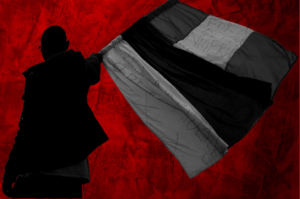
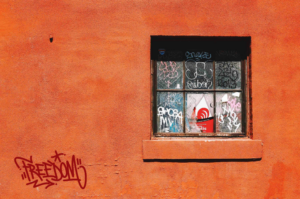

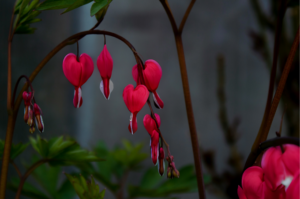
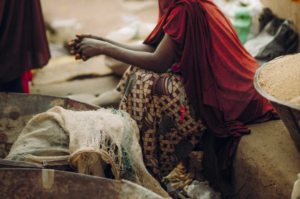
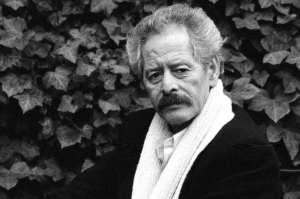

Amaka Azie July 29, 2022 15:08
Laja and Nicole have great chemistry. Here's me hoping that Nicole at least divorces Segun before getting things on with Laja. I don't find cheating romantic under any circumstance. Although I know in reality, many couples meet from extramarital affairs. enjoying the story so far. Off to read part 4. Well done!